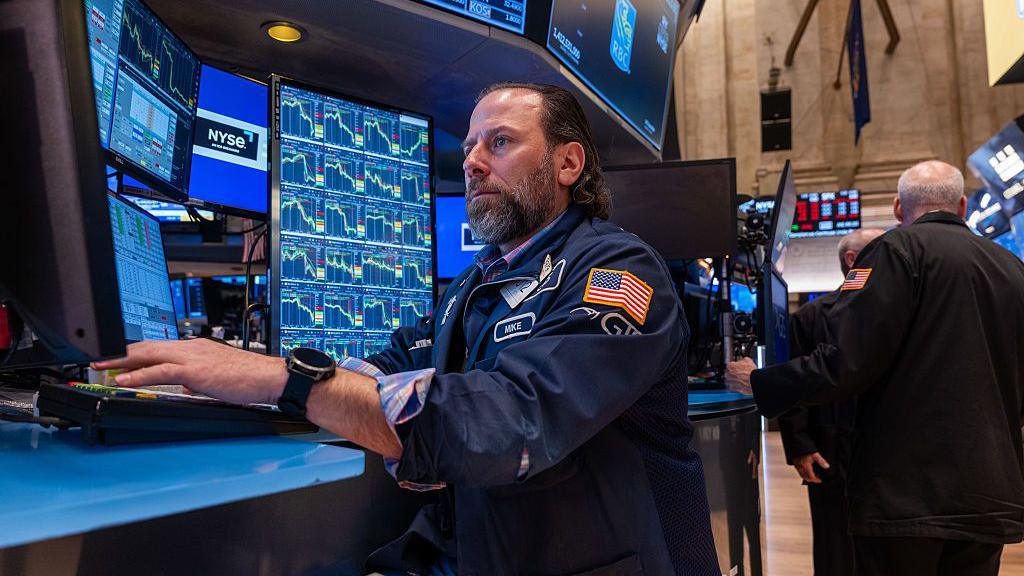Euphoria in global financial markets may not last very long
Any short-term euphoria there might be in financial markets from the rolling out of US trade deals might not go very far or last very long.

It seems that the US Administration wants to get some quick tariff wins on the board. US firms are complaining, some are suing, financial markets have been swooning, and the US Administration probably needs trade deals to ease the pressure.
With this in mind, we would not be surprised if we saw a number of deals announced soon, or at least memorandums of understanding as a precursor to full deals. These may, indeed, lead to a reversal in financial markets, with US assets and the dollar rallying. But how long this lasts is questionable.
We have argued before that the modus operandi of the US Administration seems to be to blow things up and then claim credit when things are put back together again. The explosion happened with the April 2nd tariff charge sheet and, in the future, we should expect the Administration to claim credit for bringing ‘errant’ countries to heel with new – and improved – trade deals. Agreements with the likes of Japan, India… could conceivably come soon with the promise of many more to follow.
Financial markets will not need a second invitation to buy US assets like stocks and bonds, and buy back the US dollar, as these deals are unveiled. The US dollar could, for instance, recover to 1.10, or better against the euro and 10-year treasuries could slide towards 4%. But would such improvement be sustainable?
Steven Barrow, Head of Standard Bank G10 Strategy, is not so sure for a number of reasons. The first is that much of the tariff damage has been done through the uncertainty and distrust that the policy has created. The second is that countries agreeing trade deals may not see their tariff levels go back to pre-April 2nd levels. And the third is that speed in concluding trade deals with many countries need not imply that a trade deal with, by far, the most important country, China, can be agreed just as quickly.
If we look at these in turn. On the first, we clearly have to expect that any positive market sentiment generated by new trade deals will run into a wall of hugely negative economic data on both the growth and inflation front. For even if deals can be agreed upon quickly with key trade partners, there is still likely to be time needed to rectify the initial economic hit and, even then, there is almost bound to be some permanent damage.
As former NY Fed President Bill Dudley put it recently, the best the Fed can hope for is stagflation. Steven Barrow suspects it may be hard for asset prices and the US dollar to rally significantly and sustainably on the basis of new trade deals if the economy is lurching towards a recession at the same time.
The second point is that tariffs are clearly not going back to pre-April 2nd levels. President Trump has talked before about the current 10% tariff that applies to most nations as being a reasonable baseline for future tariffs. This may mean that Japan, for instance, could see its original April 2nd tariff rate of 24% rescinded in favor of the temporary 10% rate that is in place at the moment. But just what that might mean for the UK, for instance, which started with a 10% rate on April 2nd, is anyone’s guess?
Surely the UK can’t agree to a trade deal where all the country gets for its efforts is to endure a 10% tariff rate in perpetuity. Perhaps the Administration’s thinking is that many countries can fall below 10%, but a 10% effective average will be engineered by keeping Chinese tariffs high, if not at the current ridiculous level. This brings us to the third point: China. For the economic and political costs to the US of the trade war could be greater than those in China, or at least not as onerous on China as the US Administration might have anticipated.
“We feel that when we put these three factors together, they suggest that any short-term euphoria that is in financial markets from the rolling out of US trade deals might not go very far or last very long”, said Steven Barrow.








